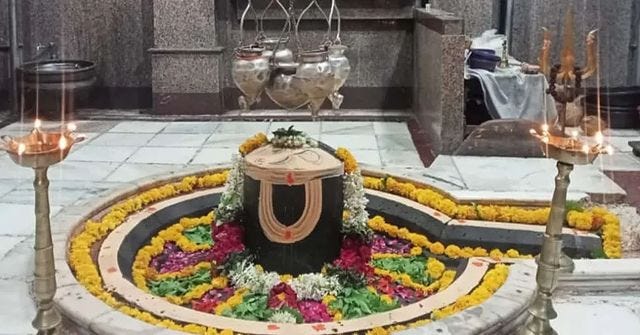Week 127: Christian Slave Trade, Dharma and Greco-Roman Classics
05/21/2022 - Modern Hindu Content
History Highlight: Christian Slave Trade in India
Readers in America will no doubt be familiar with the Trans-Atlantic Slave Trade, in which European Kingdoms brought millions of enslaved Africans to the Western Hemisphere, laying the groundwork for hundreds of years of slave trade and slavery, the effects of which are certainly still felt in many countries. Discerning readers may also be aware of the much larger Indian Ocean slave trade, in which Arab and other Muslim rulers plundered the Eastern coast of Africa for slaves, bringing them as far afield as India and Southeast Asia.
Related to both of these slave trades was the Christian Slave Trade of Hindu Indians. This was found most in Kerala, where both the Europeans and the well established Syrian Christian community of Kerala practiced slavery. DharmaPunja has a great thread on the slave trade of Hindus by Christians in Kerala (thread link, single page link)


Different Christians would kidnap Hindus, enslave them and then convert them to Christianity. They found willing collaborators and customers in the various colonial powers that came to India after the 15th century, as shown below.
Literature Highlight: Hindus and The (Greco-Roman) Classics
If you’ve been a loyal reader of Eternal Path for a while, you’ll know that we do like to showcase content around other sister civilizations to Hindu civilization; whether that be Greek, Roman, Chinese, Japanese, etc. There are many parallels in the way non-Abrahamic philosophies and theologies developed, and lessons to learn and apply from these civilization as we Hindus are the largest and longest surviving “pagan” group on the planet.
The Vikram Dialogues recently hosted an interesting discussion featuring Amit Majumdar, poet and author and Vishal Ganesan, commentator and curator of “Hindoo History”, a project that chronicles western depictions of Indians and Hindus from 19th and early 20th century news sources and ties them to attitudes towards India and Hindus today. The discussion focused on the recent moves in academia to slam the Greek and Roman classics as examples of toxic “whiteness”; this is contrasted with both Amit and Vishal’s lived experiences finding these classics relatable to core dharmic concepts and worldviews, and therefore more universal than critics claim.
I’m also glad that you brought up our own dharmic tradition, as this was another key aspect of my relationship with the classics. I'd characterize my relationship with Hinduism prior to college as primarily “cultural.” We’d attend pujas and other religious functions at temples and the homes of family friends, but I never really developed a deeper appreciation for what it meant; other kids grew up going to church, and I grew up going to the temple and occasional puja. This all changed when I began studying the Classics. Studying Greek in particular felt like a homecoming to me. Reading about grand temples, priests propitiating gods and goddesses through sacrifice, and—more importantly—seeing the world in which these gods operated was eye-opening for me. Growing up Hindu in America, I often felt that there was a strict delineation between my own worlds. The Gods were alive in the temple, but the minute we got in the car and left, it was back to the “real” world. Being immersed in a world in which the Gods were very much alive kindled anew a curiosity and appreciation for my own heritage, which I realized also belonged to an integrated whole once upon a time. The classics in this way helped spur me to bridge the gap between these two parts of my life, a journey that continues today. On the other hand, I also believe that my Hindu background enriched my own appreciation for the Classics. Socrates was not just a gadfly who died for Athenian democracy, but a sage in the mould of the Upanishadic Yājñavalkya, teaching mortals how to live and how to die; Heraclitus was not a “pre-socratic philosopher” (such a dry term!) but a Ṛṣi, a seer blessed with cosmic vision. The connections were boundless.
The link to the full discussion is here

